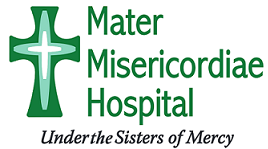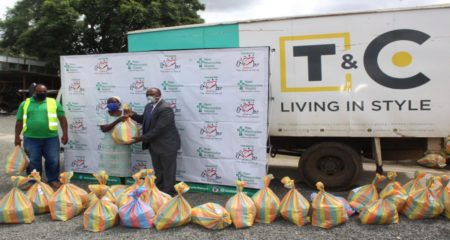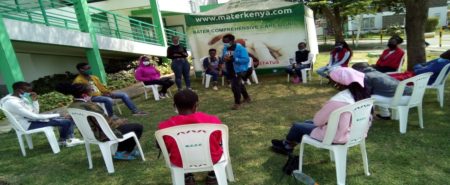
In all of Kenya it is Nairobi County which has recorded the highest number of COVID-19 cases. A densely populated area, there is inevitably a greater risk of COVID-19 transmission due to lack of social distancing, lack of protective gear and poor sanitation (hand washing).
This is where Mater Misericordiae Hospital Comprehensive Care Clinic is located with 70% of its HIV+ patients coming from the Mukuru slums which lie within the surrounding industrial area. People living with HIV are at a higher risk of contracting the virus because of their suppressed immunity status.
To curb the spread of the virus, President Kenyatta put in place several measures: the lockdown of Nairobi county; the introduction of curfew hours; the closure of schools, restaurants and bars and reduced movement and visits.
The effects of the President’s directive on our Comprehensive Care Clinic have been significant. Firstly, clients working in restaurants or bars as well as those who used to visit houses to do laundry and other evening work, lost their means of livelihood. This led to a reduction in or sometimes a total loss of income which in turn created food insecurity within the home. With the closure of schools many children missed out on the school feeding programmes, adding to the pressure on households and increasing the need for food support. Over 350 of our clients are now reporting lack of food on a monthly basis compared to last year’s level of 100 or so clients. Fortunately we are at times able to help and thanks to a partnership with Pankaj Foundation we received a food donation in April which benefited 350 food-insecure households from the slums.
 Food donation
Food donation
Our gender-based violence (GBV) programme has also noted an increase in the number of cases reported, with physical violence the most frequent, followed by sexual violence, with children sadly being the most affected. Referrals by our community-based GBV advocates for treatment and support of both victim and family are understandably on the increase.
A need we have identified within our trauma counselling service is the creation of a safe play space for young survivors. We are prioritising the play therapy materials required – items such as drawing/painting materials, storybooks, educational materials on the prevention of violence are all on our wish list.
The number of pregnancies among school-going girls is also on the rise. This can often be attributed to lack of finance as well as family support. Within our programme we try to provide support through behavior-change seminars for the young people.
 A recent behavior change seminar held at MCCC
A recent behavior change seminar held at MCCC
Clients living outside Nairobi experienced challenges in accessing their antiretroviral drugs due, for the most part, to a lack of information on where and how to access them in the more rural areas. With the cooperation of the Center for Disease Control we shared the directory of their HIV care facilities where the appropriate drugs could be sourced.
The provision of antenatal and postnatal services and well-baby clinics has thankfully continued throughout the pandemic season. A modest increase in the number of pregnant women attending antenatal services has been recorded. As already mentioned, the interruption in livelihoods has led to an increased level of food insecurity for expectant and breast-feeding mothers and their children. We are able, through our programme for the prevention of mother to child transmission (PMTCT), to provide access to free delivery services within public and some private hospitals. For mothers who are unable to breastfeed during the first six months of the baby’s life, formula milk is provided through our programme.
There is no doubt that the COVID-19 pandemic has had far reaching effects globally, not only on health but more broadly, from an economic and social perspective. For the clients of Mater CCC, the impact has been felt most acutely as interrupted livelihoods led not just to food insecurity but to severely depleted levels of income to cover basic living costs.
We are fortunate in the support we receive from different sources including that of Ms. Sonali (of the International School of Kenya), who mobilised donations of various kinds – clothes, books, sanitary products, toys – for our clients.
Over the past few months, however, what also emerged was the level of engagement and the undeniable team spirit of our staff in the care, treatment and support of our HIV clients at Mater Comprehensive Care while their dedication ensured the continuity of all our services during these difficult times. The past months and events have tested their courage, commitment and purpose as each of them has succeeded in his or her own way in bringing a little bit of mercy into the lives of the people we serve.
Brigid Marnane rsm
Kenya Province


